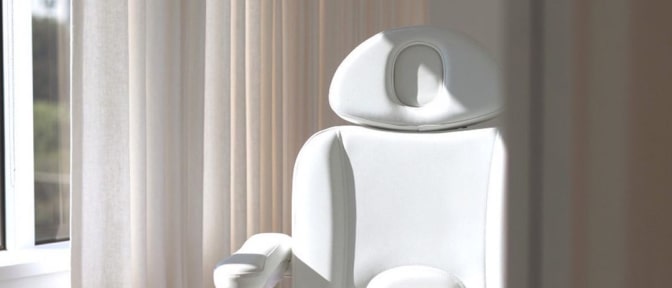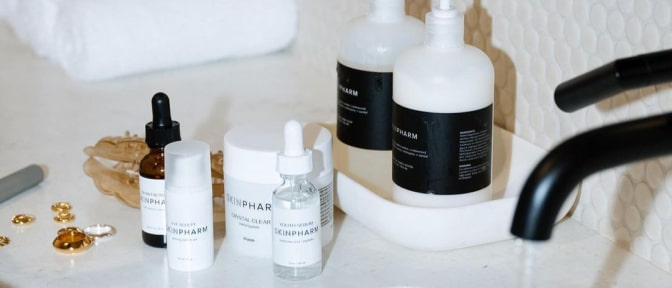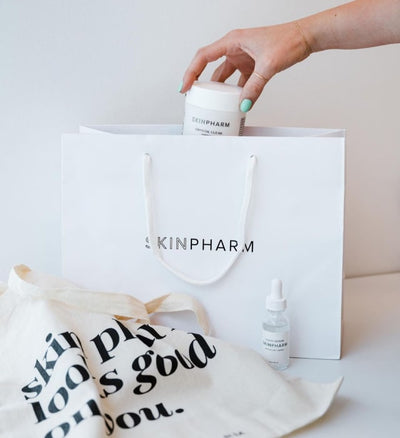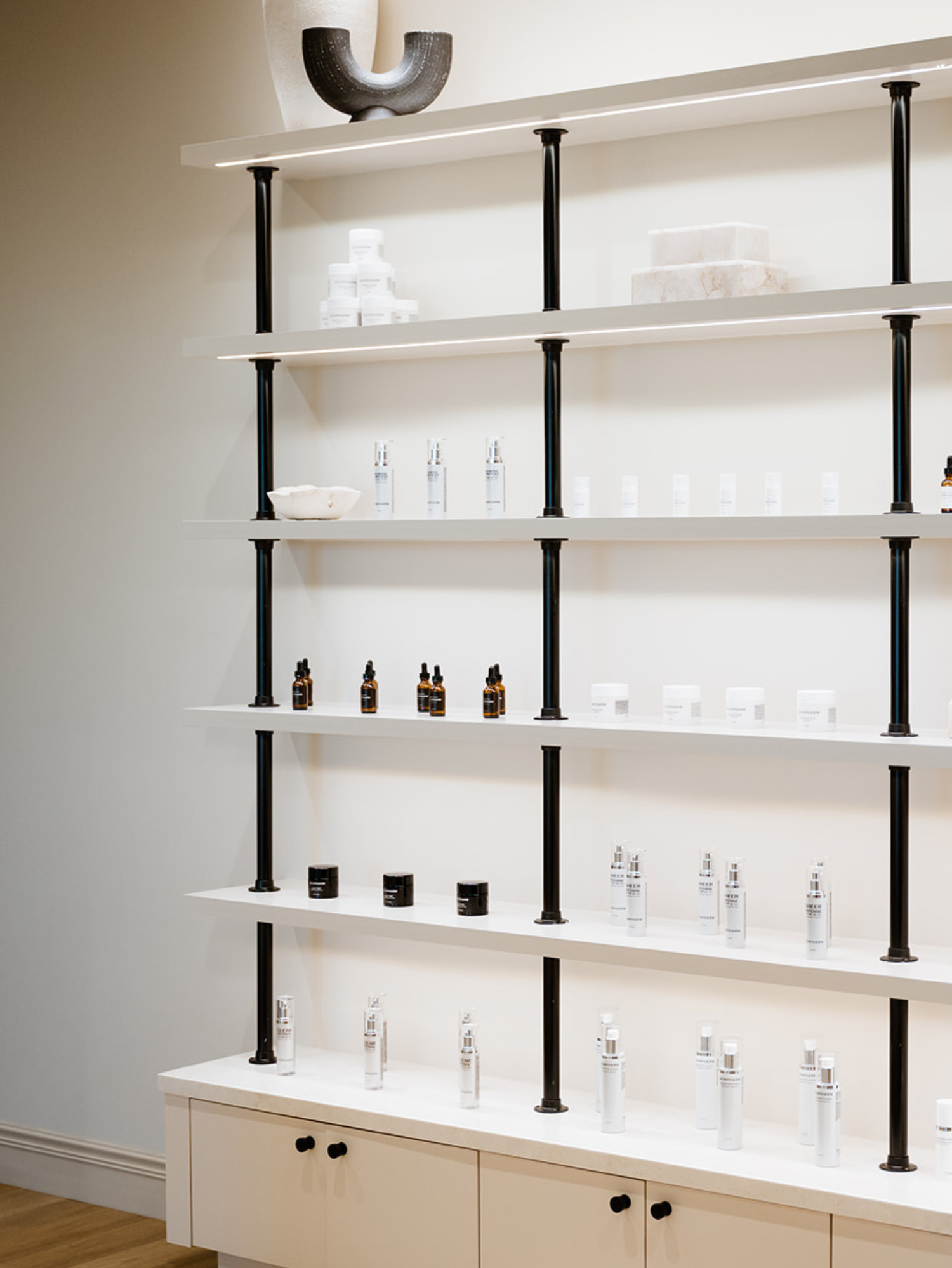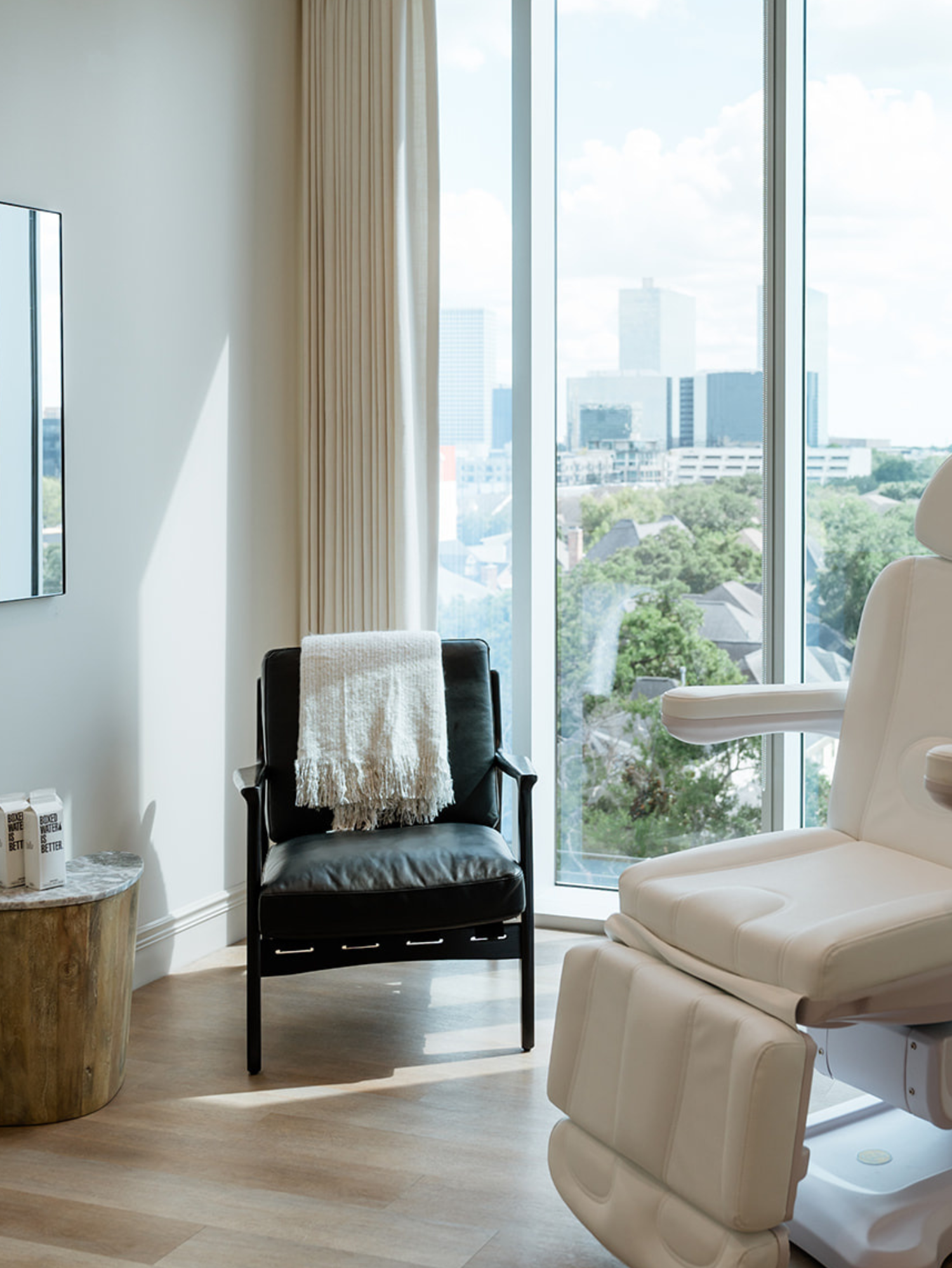Shop skin care
Clinics
VISIT OUR 9 CLINICS →
HOURS
Monday – Friday
9:30a – 5:30p
What Causes a Pregnancy Glow?

Ahh, that infamous “pregnancy glow.”
Pregnancy is such a special time for mamas-to-be. And while some side effects of pregnancy can be unpleasant, a pregnancy glow is something to look forward to!
When do people start to notice a pregnancy glow?
Although there is no scientific evidence to back it up, most people start to develop a noticeable pregnancy glow when they enter their second trimester.
If you’re unfamiliar with the stages of pregnancy, the second trimester begins at week 13 (three months and one week) and goes through week 28 (seven months). For many people, this is also the “easiest” of the trimesters, where mamas-to-be feel their best and are experiencing the fewest pregnancy-related side effects.
This glow continues through the third trimester and starts to fade shortly after giving birth in the postpartum period.
Nice! What causes a pregnancy glow?
While researchers have not yet found the specific biological reason behind a pregnancy glow, we can apply what we know about pregnancy to help us understand it better. Realistically, it comes down to a few physiological changes that happen to the body during pregnancy.
HORMONAL LEVEL CHANGES—
The fact that the body’s hormone levels change during pregnancy is well-known, much like the stereotype of the overly emotionally pregnant person. However, not all of those hormone level changes are bad, and they all happen for crucial reasons.
For instance, in the first trimester, your body is inundated with the hormones progesterone and estrogen. Progesterone helps support a healthy pregnancy by allowing the body to hold on to the egg, reducing the risk of a miscarriage.
Estrogen is equally essential, as it allows the uterus to grow with the baby, helps with organ development, and maintains the levels of many other pregnancy-related hormones.
However, progesterone and estrogen are controlled by an even more specific hormone known as human chorionic gonadotropin (or HCG for short). HCG is only produced during pregnancy as it is secreted by the placenta, even when small.
But how do these hormonal changes lead to glowy skin?
Progesterone can increase the skin’s natural oil production (sebum), making it look more radiant. Estrogen can make your skin look flushed, giving you a rosy-cheeked appearance. And HCG is known for helping increase the blood volume throughout the body, which we’ll explore in more detail next.
INCREASED BLOOD FLOW—
When pregnant, your body naturally produces more blood to keep up with the increased demand. In fact, some experts have estimated that the amount of blood in a pregnant person’s body is 50% more than it was before pregnancy!
A positive side effect of this increased blood volume is glowing skin, as your blood vessels become dilated and make your skin appear more flushed.
What are the downsides of that pregnancy glow?
The pregnancy glow itself doesn’t have many downsides, but the physiological forces that are likely behind it may negatively impact the skin.
According to the American College of Obstetricians and Gynecologists, a handful of skin conditions may appear or worsen due to pregnancy. They include:
- Acne
- Hyperpigmentation
- Melasma
- Stretch marks
- Varicose veins
These downsides result from a pregnancy glow that has gone “too far.” For instance, while the skin changes that come from increased progesterone production can make the skin appear radiant and glowy, too much can cause oily skin. With oily skin also comes an increase in the risk of clogged pores and breakouts, especially if you are already prone to them.
What skin care products are safe to use while pregnant?
Just because you’re pregnant doesn’t mean you just have to accept what happens to your skin. You can continue with a skin care routine, but you may have to make a few adjustments to ensure that your cleanser, toner and other topical products are safe for you and your baby.
If you’re one of the many pregnant people who deal with breakouts, you’ll want to contact your provider when you first find out that you’re expecting. They can go over your products and medications in detail and help you find substitutions if anything you’re currently using is considered unsafe.
As a general rule, and according to the American Academy of Dermatology Association, medications that have been linked to an increased risk of serious health conditions should not be used during pregnancy. Health experts also recommend discontinuing the use of adapalene, tretinoin and certain antibiotics.
However, some ingredients can be safely used in pregnancy. Ingredients like azelaic acid, glycolic acid and salicylic acid (in small doses) can all be used to help reduce the onset of breakouts even while pregnant, as long as you consult with your healthcare provider first.
There are plenty of ways to keep your skin care routine pregnancy-safe so that you can enjoy your pregnancy glow without all the breakouts that can accompany it. We have a Pregnancy-Safe Kit featuring our skin care routine favorites for mamas-to-be, too!
Even a handful of safe cosmetic treatments can still be done (with your OB’s permission), including BBL photofacials, Gold Infusions, microneedling and PRP (platelet-rich plasma) injections.
OB-GYN recommended skin care tips
If you’re looking for basic skin care tips that you can use while pregnant, the American College of Obstetricians and Gynecologists suggests the following:
WASH YOUR FACE—
Wash your face twice daily with a mild cleanser (with OB-approved ingredients). Use lukewarm water only to minimize the damage to your skin, which is extra sensitive during pregnancy. We recommend our Gentle Soothing Cleanser for mamas-to-be!
SHAMPOO DAILY—
If your hair is also more oily than usual, make sure to shampoo it every day and take steps to keep it off your face as much as possible. This reduces oil transfer from your hair to your face and lowers the risk of breakouts — especially on your forehead.
DON’T PICK AT YOUR SKIN—
If you do develop breakouts, resist the urge to pop or pick them to decrease the likelihood of scarring.
CHOOSE “OIL-FREE”—
For those who wear makeup, look for cosmetics listed as “non-comedogenic” or “oil-free.” These products are made with ingredients less likely to clog your pores and lead to blemishes. In addition, especially if you wear makeup, always take it off before going to bed at night.
WEAR SUNSCREEN—
Wear pregnancy-safe sunscreen any time you leave the house, especially when you know you’ll be getting increased sun exposure. Good choices for sunscreens safe to use in pregnancy are those with broad-spectrum protection (against UVA and UVB radiation), an SPF of at least 30, and active ingredients like zinc oxide or titanium dioxide. (We love 100% Mineral Tinted SPF and Beach Body for new mamas and moms-to-be!)
STAY HYDRATED—
Stay hydrated and start using a moisturizing body lotion — especially on your stomach, thighs, chest and arms — to prevent the likelihood of stretch marks.
To sum things up...
Pregnancy is such a precious, special time. And if you’re a mama-to-be experiencing that healthy pregnancy glow, enjoy it!
If you follow these recommended skin care tips, you’ll be able to reap the benefits of healthy, glowing skin during your pregnancy — and beyond!
SOURCES:
Stages of pregnancy | Office on Women's Health
